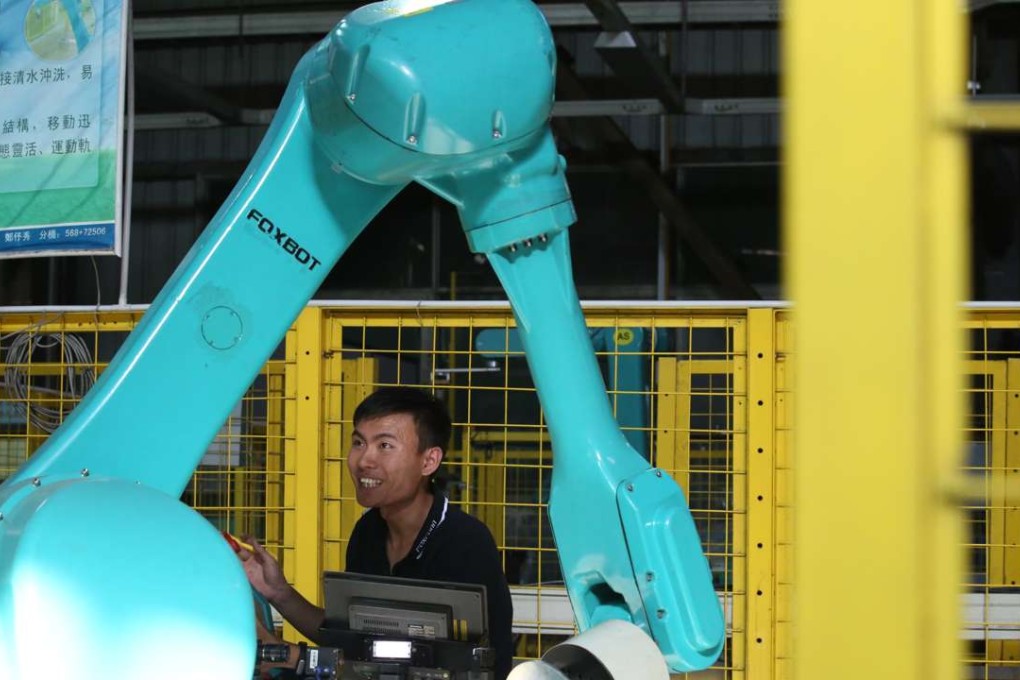Foxconn hits bumps in road to full automation
Electronics assembler’s love affair with robots goes on despite slowdown in the process of industrial automation due to complex manufacturing operations

Foxconn Technology Group, the world’s largest contract assembler of electronics, said it is slowing the process of converting manual labour to full automation because humans are cheaper and more flexible to adapt to an ever-shorter life cycle of consumer products.
Instead, it installed about 40,000 fully operational industrial robots as well as hundreds of thousands of other pieces of automated equipment, and still has one million workers in more than 20 factories across the country putting together Apple’s iPhones, iPads and smart devices for several other Chinese and overseas brands.

Dai said the pace of applying robots in Foxconn’s factories had slowed in the past year, following current technical limitations in automation and concerns over cost-effective manufacturing management.